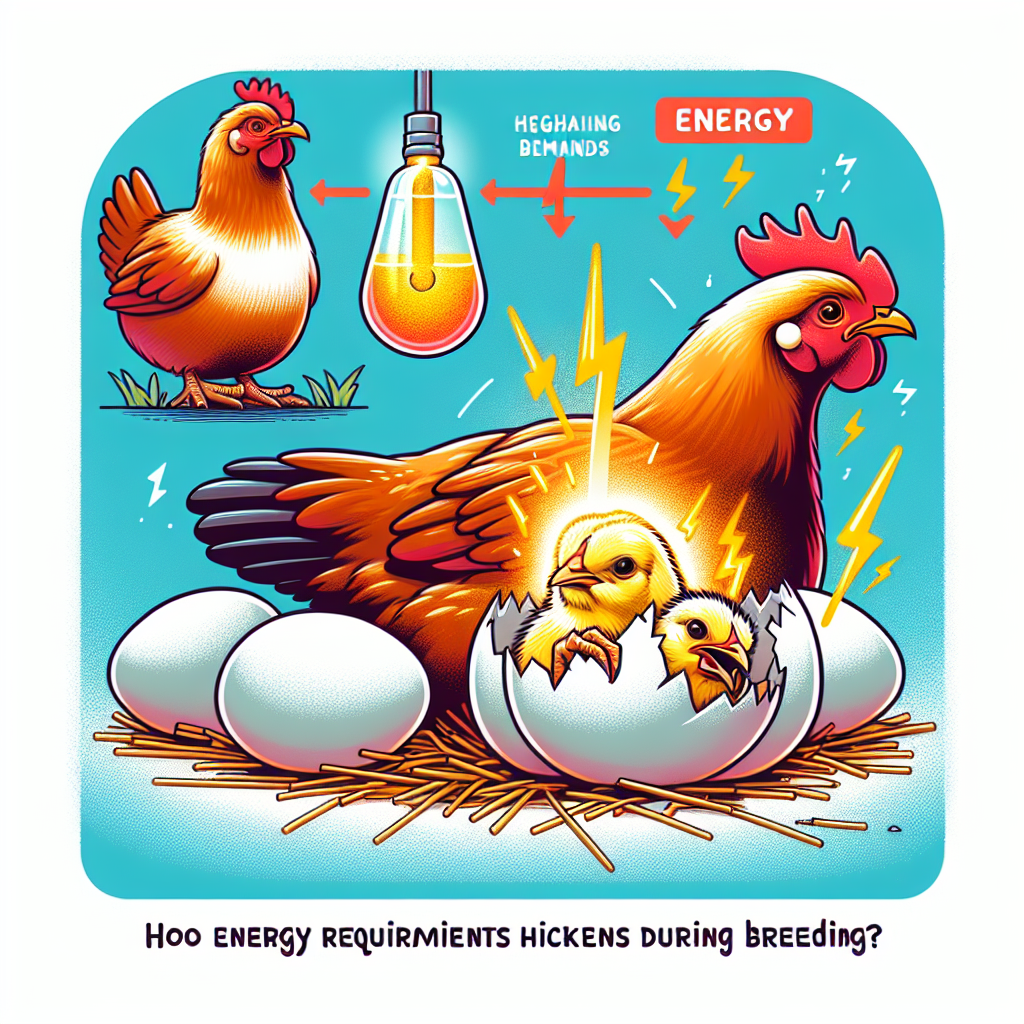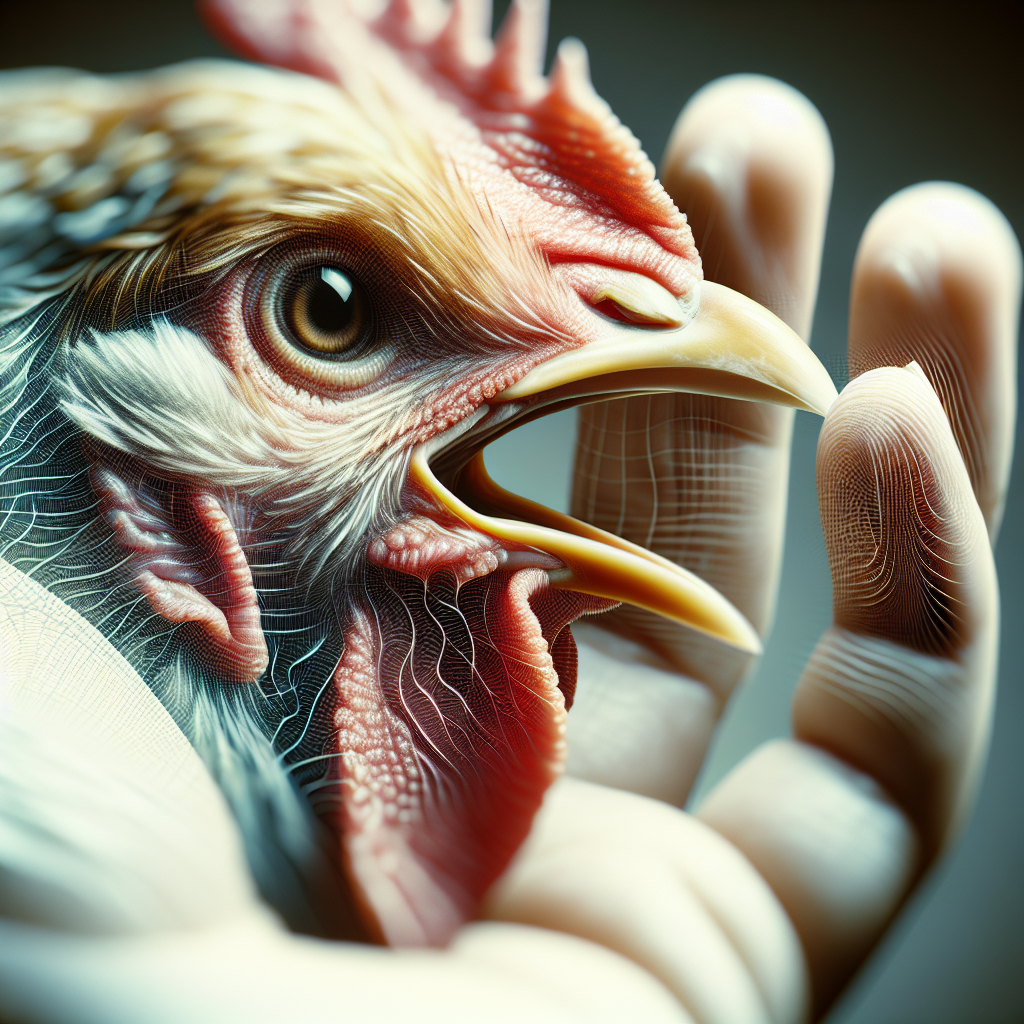During the breeding season, chickens experience a significant change in their energy requirements. As they prepare to produce eggs, their bodies undergo a series of physiological changes that demand extra energy. This article explores the fascinating topic of how energy requirements evolve for chickens during the breeding process, shedding light on the intricacies of their reproductive cycle and the vital role nutrition plays in supporting their reproductive success. From increased activity levels to the formation of nutrient-rich eggs, understanding these energy fluctuations is crucial for ensuring the health and well-being of our feathered friends. So, let’s dive into the world of chicken breeding and uncover the secrets behind their changing energy needs.
Introduction
Breeding chickens require a significant amount of energy to support their reproductive processes. During this period, the hens go through a series of physical and physiological changes that demand additional nutrients to ensure healthy egg formation, incubation, and development of chicks. In this article, we will explore the factors that affect the energy requirements of breeding chickens, specific nutritional needs during this period, feeding strategies, monitoring and managing energy intake, addressing nutritional deficiencies, health considerations, and potential productivity benefits. Understanding these factors will help you provide the best care for your breeding flock and optimize their reproductive performance.
Factors Affecting Energy Requirements during Breeding
Physical Growth and Development
During the breeding season, chickens experience physical growth and development as their bodies prepare for reproduction. This growth requires a substantial amount of energy to support bone development, muscle growth, and overall physiological changes. As chickens mature, their energy requirements naturally increase to meet the demands of their developing bodies.
Reproductive Effort
The reproductive effort of breeding chickens also significantly affects their energy requirements. The production and maintenance of eggs, incubation, and the care of chicks all require substantial energy expenditure. Female chickens invest a substantial amount of energy in the formation and laying of eggs, while male chickens also experience increased energy demands due to mating activities.
Environmental Conditions
Environmental conditions, such as temperature and humidity, play a crucial role in determining the energy requirements of breeding chickens. Colder temperatures require additional energy to maintain body temperature, while higher temperatures can increase energy expenditure as chickens try to dissipate heat. Humidity also affects energy expenditure, as chickens may experience increased respiratory rates to cool themselves down.
Increased Energy Demands during Breeding
Egg Formation
Egg formation is a metabolically demanding process that significantly increases the energy requirements of breeding chickens. Various nutrients, such as protein, calcium, phosphorus, vitamins, and minerals, are essential for the development of a healthy egg. The production of yolk, albumen, and eggshell requires a substantial amount of energy and nutrients from the hen’s diet.
Incubation and Chick Development
After a hen lays an egg, the incubation process begins, requiring additional energy to maintain the appropriate temperature and humidity levels. During incubation, the hens spend extended periods sitting on the eggs to provide warmth and ensure proper development of the embryos. This prolonged period of inactivity and increased metabolic demands can lead to increased energy requirements.
Behavioral Activities
Breeding chickens engage in various behavioral activities, such as mating, territorial defense, nest construction, and caring for chicks. These activities require energy expenditure and can increase the overall energy demands during the breeding season. Roosters, in particular, engage in vigorous mating behaviors that can further elevate their energy consumption.
Specific Nutritional Needs during Breeding
Protein Requirements
Protein is a crucial nutrient during the breeding season, as it is essential for egg production, embryo development, and chick growth. Breeding chickens require a higher proportion of protein in their diet compared to non-breeding birds. Providing a feed with a higher protein content can support optimal reproductive performance and offspring quality.
Calcium and Phosphorus
Calcium and phosphorus are vital minerals for breeding chickens, particularly for eggshell formation and skeletal development of chicks. Females need an adequate supply of calcium to ensure the production of strong eggshells, while chicks require sufficient calcium and phosphorus for proper bone growth. Balanced diets formulated with appropriate levels of these minerals are crucial during the breeding season.
Vitamins and Minerals
During breeding, chickens have increased vitamin and mineral requirements to support various physiological processes. Vitamins such as vitamin E, vitamin D, and B vitamins are essential for reproductive function, immune support, and optimal growth. Adequate levels of minerals like iron, zinc, copper, and selenium are also necessary for overall health and vitality during this period.
Feeding Strategies for Breeding Chickens
Increase Energy-Dense Foods
One feeding strategy for breeding chickens is to provide energy-dense foods in their diet. This includes using feed formulations with higher levels of grains, fats, and oils. These ingredients provide a concentrated source of energy that can meet the increased demands of breeding chickens. However, it is important to strike a balance and not solely rely on energy-dense foods, as a balanced diet is essential for overall health and well-being.
Supplemental Feeding
Supplemental feeding can play a crucial role in meeting the nutritional needs of breeding chickens. Offering additional feedings of high-quality protein sources, such as mealworms or soybeans, can provide the extra nutrients necessary during the breeding season. It is important to choose supplements that are appropriate for chickens and consult with a poultry nutritionist for guidance.
Balanced Diet Approach
A balanced diet is key to meeting the overall nutritional needs of breeding chickens. This includes providing a diet that contains adequate levels of protein, carbohydrates, fats, vitamins, and minerals. A well-formulated commercial feed designed specifically for breeding chickens can ensure that all nutritional requirements are met. Consulting with a poultry nutritionist can help tailor the diet to the specific needs of your breeding flock.
Monitoring and Managing Energy Intake
Weighing and Body Condition Scoring
Monitoring the weight and body condition of breeding chickens can provide valuable insights into their energy intake and overall health. Regular weigh-ins and body condition scoring can help identify any changes in weight or body condition, allowing for adjustments to be made to their diet if necessary. Maintaining an optimal body condition is essential for reproductive success and overall well-being.
Adjusting Feed Quantity and Type
As the energy requirements of breeding chickens fluctuate throughout the breeding season, it may be necessary to adjust the quantity and type of feed they receive. This can be done based on observations of their weight, body condition, and overall energy levels. Providing smaller, more frequent meals or increasing the overall amount of feed can help ensure that their energy needs are adequately met.
Feeding Schedule
Establishing a consistent feeding schedule can also aid in managing energy intake. Providing feed at consistent times each day allows breeding chickens to anticipate and prepare for their meals. Additionally, monitoring feeding behaviors can help identify any changes in appetite or feed consumption, which can be indicative of potential health issues.
Addressing Nutritional Deficiencies
Consulting with a Poultry Nutritionist
If you suspect or identify any nutritional deficiencies in your breeding flock, it is crucial to consult with a poultry nutritionist. They can analyze the diet, assess the birds’ overall health, and provide recommendations on how to address any deficiencies. A nutritionist can help formulate a specific feeding plan tailored to your flock’s needs to ensure optimal reproductive performance.
Supplementation and Feed Additives
Supplementation with vitamins, minerals, or feed additives may be necessary to address specific nutritional deficiencies in breeding chickens. These supplements can be administered in the form of premixes or additives mixed into the feed. However, it is important to consult with a poultry nutritionist or veterinarian to determine the appropriate dosage and type of supplement to avoid over-supplementation or imbalances.
Health Considerations
Preventing Obesity
Maintaining a healthy body weight is essential for the overall health and reproductive success of breeding chickens. Obesity can negatively affect fertility and egg production. It is important to provide a balanced diet, monitor feed intake, and encourage regular physical activity to prevent obesity in breeding chickens.
Minimizing Heat Stress
Heat stress can have a detrimental effect on breeding chickens, leading to decreased egg production, poor fertility, or even mortality. Providing adequate shade, ventilation, and access to cool, clean water is vital in preventing heat stress during the breeding season. Minimizing exposure to direct sunlight during the hottest parts of the day can also help alleviate heat stress.
Preventing Nutritional Disorders
Proper nutrition is crucial in preventing nutritional disorders in breeding chickens. A balanced diet and adequate intake of essential nutrients can help prevent conditions such as metabolic disorders, eggshell abnormalities, and developmental issues in chicks. Regular monitoring of feed intake, body condition, and overall health can help identify and address any potential nutritional disorders.
Potential Productivity Benefits
Optimizing Energy Intake
By understanding and meeting the energy requirements of breeding chickens, you can optimize their reproductive performance and productivity. Adequate energy intake supports healthy egg production, successful incubation, and chick development, ultimately leading to increased hatchability rates and quality offspring.
Improved Fertility and Hatchability
Providing the appropriate nutrition and managing the energy intake of breeding chickens can significantly improve fertility and hatchability rates. A well-balanced diet, supplemented with necessary nutrients, ensures that both male and female chickens are in optimal reproductive condition, increasing the chances of successful mating, fertilization, and hatching.
Enhanced Offspring Survival
Proper nutrition during breeding positively impacts the survival and overall health of the offspring. Chicks hatched from well-nourished parents have a higher chance of developing strong immune systems, robust growth, and overall vitality. This, in turn, leads to improved survival rates and higher quality offspring.
Conclusion
Understanding the energy requirements and specific nutritional needs of breeding chickens is essential for their reproductive success. Providing an appropriately balanced diet, monitoring energy intake, and addressing any nutritional deficiencies or health concerns are important aspects of ensuring optimal breeding performance. By actively managing the energy demands of breeding chickens, you can enhance their overall health, productivity, and the success of future generations.




